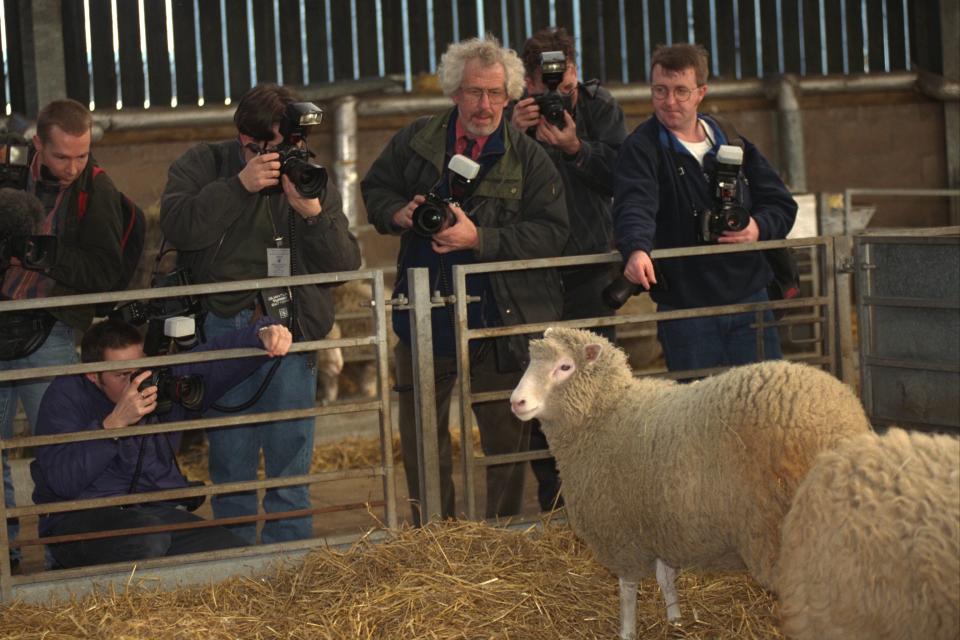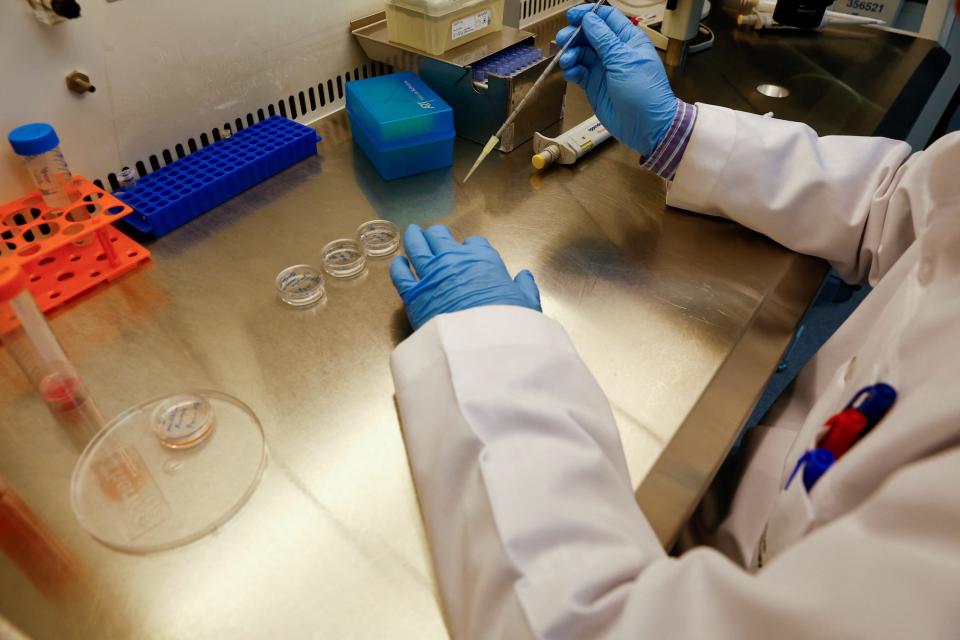-
A Montana farmer has been charged with illegally selling the offspring of a cloned sheep across state lines.
-
The retail value of the animals transported ranges from $250,000 to $550,000, according to court documents.
-
The hybrid cubs were probably sold to game farms for hunting purposes.
Arthur “Jack” Schubarth, an 80-year-old Montana farmer, had a profitable business until authorities caught wind of it.
For the last five years or so, Schubarth has been selling sheep for tens of thousands of dollars.
There is nothing illegal about selling sheep for exorbitant prices – unless the animals are Marco Polo argali sheep, or in Schubarth’s case, a hybrid of Marco Polo argali sheep.
Marco Polo argali sheep are native to Central Asia and are considered threatened under the U.S. Endangered Species Act. Montana law prohibits their importation, possession and sale.
On Tuesday, Schubarth pleaded guilty to charges in a scheme involving all three.
His sentencing is scheduled for July, and he faces up to five years in prison and a fine of up to $250,000 for each of the two counts against him.
The USA has wildlife protection laws
According to court documents, it all started in 2013 when an unnamed party illegally imported Marco Polo argali sheep parts from Kyrgyzstan into the United States.
Schubarth soon allegedly took possession of parts of the sheep and in 2015 paid a $4,200 deposit to produce cloned sheep embryos from dead argali remains.
In May 2017, a pure argali sheep was born from one of the cloned embryos. Schubarth called him the Montana Mountain King.
According to court documents, Mountain King would become Schubarth’s golden goose in a lucrative business plan to create larger, more attractive sheep for hunting ranches in (mostly) Texas.
Schubarth collected Mountain King’s sperm in 2018 and used it to create hybrid offspring by artificially inseminating bighorn sheep (female sheep) on his farm.
Over the next several years, Schubarth, along with several unnamed groups, illegally transported dozens of sheep and their hybrid offspring across state lines.
In the process, they are accused of forging veterinary inspection certificates and lying about sheep being a legally permitted species, according to court documents.
Sheep worth tens of thousands of dollars
Naturalist George Schaller told NPR in 2006 that the Marco Polo, a subspecies of argali sheep, is “an almost legendary animal” prized by trophy hunters for its large spiral horns.
Schubarth’s hybrids were a mix of Marco Polo and other bighorn sheep. Their large size and giant horns will fetch higher prices on hunting farms than other species. According to the Department of Justice’s statement, Schubarth sold 24 hybrids for $46,200 in 2020.
Joyce Tischler, a professor at the Center for Animal Law Studies at Lewis & Clark Law School, told Business Insider that Schubarth’s cloning of the dead sheep did not violate the law because there are no regulations on animal cloning in the United States.
All this was illegal transportation (and denial and forgery of official documents) across state borders.
Schubarth pleaded guilty on March 12 to conspiracy and trafficking in violation of the Lacey Act, according to a Department of Justice statement. The law prohibits the trade of illegally acquired wild animals.
The retail value of the wildlife transported was between $250,000 and $550,000, according to court documents.
“What I see as the danger is that if this becomes popular, then other people will want to import argali sheep illegally to make money off of them,” said Joyce Tischler, a professor at the Center for Animal Law Studies at Lewis & Clark Law School. He told Business Insider:
How to clone a sheep
Although none of the Justice Department’s charges relate to cloning illegally imported sheep parts, the process remains controversial in some countries.
The European Union banned the cloning of farm animals in 2015, citing animal welfare concerns. One of the biggest concerns was the low success rate of cloning mammals. It’s unclear what Schubarth’s success rate was, but court documents mention only one cloned animal: the Montana Mountain King.


Some improvements have been made since Dolly the sheep, the world’s first mammal clone, was born in 1996. However, this is still a complex process that requires veterinary expertise and surgical procedures for sheep.
The hardest part was implanting the cloned embryos into a live sheep and carrying it to birth, biotech expert Alison Van Eenennaam of the University of California, Berkeley, who was not involved in the case, told Business Insider.
A specialist will make an incision, insert the embryo into the uterus and sew the sheep back together. “This is a real scene,” Van Eenennaam said. “It’s not such a trivial thing to do.”
Van Eenennaam said ewes need to be at the right stage of their reproductive cycle to sustain pregnancy.
After having Schubarth’s male clone, Mountain King, creating a family of hybrids was an easier process. He could use King’s semen to artificially inseminate sheep; There was no need for any surgical intervention.
The real problem here is not cloning
The plea agreement requires Schubarth to quarantine all clones and offspring. The U.S. Fish and Wildlife Service may also decide to sterilize the animals, according to court documents.
Gregory Kaebnick, a senior research fellow at the Hastings Center who studies bioethics, isn’t concerned that cloned sheep could impact wild species or alter ecosystems because they appear to be bread for hunting. But he said this could be a concern in the future.
“Some of this technology comes down to what is sometimes called the DIY bio level or garage bio level,” he said. “People are kind of trying to hack genomes in their basements.”


It’s not entirely unreasonable to start thinking about how this might one day affect genomes in the wild, Kaebnick said.
Van Eenennaam agrees that the genetic component of this case is not particularly concerning. The success rate of livestock cloning is still relatively low.
But bringing tissues from any non-native species could pose a biosecurity risk if they carry disease, he noted.
“Moving material without proper permits is your worst nightmare because of the potential threat to the agricultural industry,” he said.
Schubarth’s lawyers did not respond to Business Insider’s request for comment.
Read the original article on Business Insider